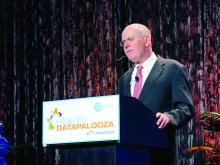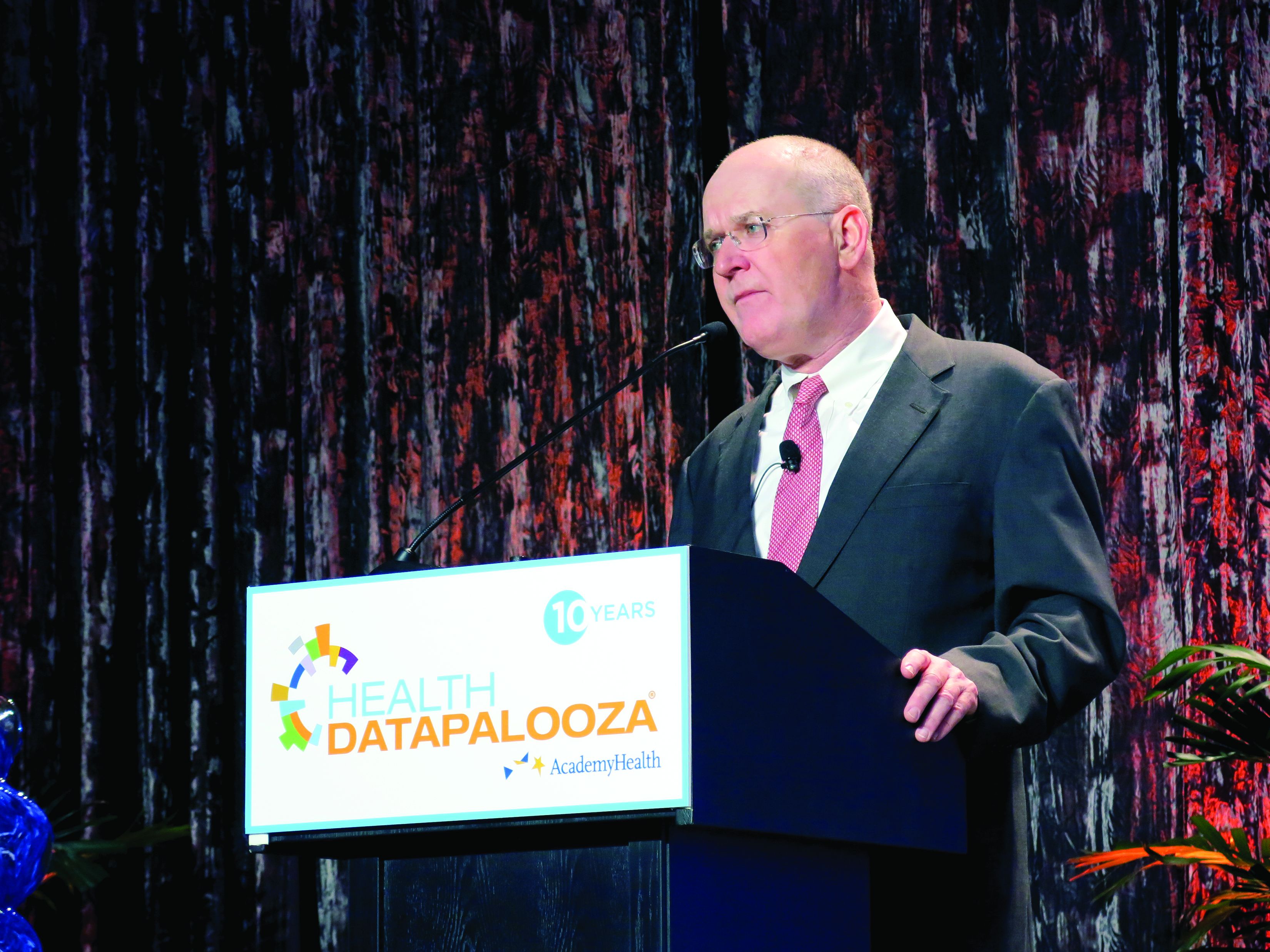User login
ONC’s Dr. Rucker: Era of provider-controlled data is over
“The era of the provider controlling all of this, I think this is over,” Donald Rucker, MD, head of the Office of the National Coordinator (ONC) for Health Information Technology within the Department of Health and Human Services, said at an annual conference on health data and innovation. We need a “formal path to put patients back in control of their medical data.”
That path can be found in a pair of proposed rules issued earlier this year, one from the Centers for Medicare & Medicaid Services and the other from ONC, that are designed to give patients that control.
With smartphone apps under development that will allow patient access to health care data from a single point of entry, “technology now allows us to move from having to go portal to portal to portal to really having us in control,” Dr. Rucker said. “I think it is going to transform [health care] in the same way that the smartphone app has transformed other sectors. We are very excited about that.”
Access to data and information should further the transition to value-based care as patients become the center of the decision tree, Dr. Rucker said, making decisions based on benefits in a way that is not possible now.
“In particular, we think patients are going to start being able to shop for care,” he said, adding that if “they don’t like the price of the care they are getting, they are going to be able to move their business elsewhere.”
To that end, he said that much of the talk about interoperability “is really a conversation about affordability and the vast expenses in health care and how you get some control over that.”
“The era of the provider controlling all of this, I think this is over,” Donald Rucker, MD, head of the Office of the National Coordinator (ONC) for Health Information Technology within the Department of Health and Human Services, said at an annual conference on health data and innovation. We need a “formal path to put patients back in control of their medical data.”
That path can be found in a pair of proposed rules issued earlier this year, one from the Centers for Medicare & Medicaid Services and the other from ONC, that are designed to give patients that control.
With smartphone apps under development that will allow patient access to health care data from a single point of entry, “technology now allows us to move from having to go portal to portal to portal to really having us in control,” Dr. Rucker said. “I think it is going to transform [health care] in the same way that the smartphone app has transformed other sectors. We are very excited about that.”
Access to data and information should further the transition to value-based care as patients become the center of the decision tree, Dr. Rucker said, making decisions based on benefits in a way that is not possible now.
“In particular, we think patients are going to start being able to shop for care,” he said, adding that if “they don’t like the price of the care they are getting, they are going to be able to move their business elsewhere.”
To that end, he said that much of the talk about interoperability “is really a conversation about affordability and the vast expenses in health care and how you get some control over that.”
“The era of the provider controlling all of this, I think this is over,” Donald Rucker, MD, head of the Office of the National Coordinator (ONC) for Health Information Technology within the Department of Health and Human Services, said at an annual conference on health data and innovation. We need a “formal path to put patients back in control of their medical data.”
That path can be found in a pair of proposed rules issued earlier this year, one from the Centers for Medicare & Medicaid Services and the other from ONC, that are designed to give patients that control.
With smartphone apps under development that will allow patient access to health care data from a single point of entry, “technology now allows us to move from having to go portal to portal to portal to really having us in control,” Dr. Rucker said. “I think it is going to transform [health care] in the same way that the smartphone app has transformed other sectors. We are very excited about that.”
Access to data and information should further the transition to value-based care as patients become the center of the decision tree, Dr. Rucker said, making decisions based on benefits in a way that is not possible now.
“In particular, we think patients are going to start being able to shop for care,” he said, adding that if “they don’t like the price of the care they are getting, they are going to be able to move their business elsewhere.”
To that end, he said that much of the talk about interoperability “is really a conversation about affordability and the vast expenses in health care and how you get some control over that.”
REPORTING FROM HEALTH DATAPALOOZA 2019

